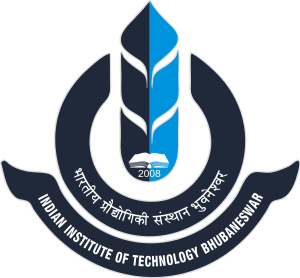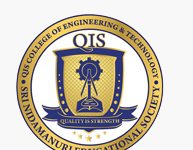Indian Institute of Technology Bhubaneswar wanted Adjunct Faculty positions at the level of Professor, Associate Professor and Assistant Professor for 2024-2025 academic year. Eligible candidates are requested to apply through Email
Post Date: 12th November 2024
College Name: Indian Institute of Technology

College Profile: Indian Institute of Technology Bhubaneswar came into existence in July 22, 2008, inheriting the brand name IIT. This fact itself charges the Institute not only to be worthy of its inheritance but also to be distinctive and distinguished on its own by scripting a path towards novelties. Presented below are the statements for Vision, Mission, Goals & Strategies (to achieve the Goals) and the Core Values of IIT Bhubaneswar.
Job Title:
- Adjunct Faculty positions at the level of Professor, Associate Professor and Assistant Professor
Departments:
- Name of the Course: Teacher and Society
About the Course
Teachers unarguably have the key role in nurturing young lives and shaping positive and inspired future generations. Emphasizing on the crucial role of teachers NEP 2020 states “teachers truly shape the future of our children – and, therefore, the future of our nation.”. “The high respect for teachers and the high status of the teaching profession must be restored to inspire the best to enter the teaching profession. The motivation and empowerment of teachers is required to ensure the best possible future for our children and our nation.” (NEP Para 5.1). The NEP in its introductory section states, “the teacher must be at the centre of the fundamental reforms in the education system” and highlights the need to “help re-establish teachers, at all levels, as the most respected and essential members of our society, because they truly shape our next generation of citizens”. (NEP 2020, Introduction). The policy also stresses the need to “do everything to empower teachers and help them to do their job as effectively as possible.” It is recognized that teachers are second to mothers in having the opportunity to work with children during the most impressionable years in their life and shape opinions, form ideas about personal and social goals and about society and life, contributing so much to the development of both individuals and society.
The focus of the course on ‘Teacher & Society’ is on developing an understanding among student teachers of the roles of teachers in the emerging Indian society, including the changing roles of teachers in the context of the global flows of people, culture and resources that are shaping society, and the application of technologies that are constantly redefining not only the educational landscape but also the human relationships and social norms which are continuously undergoing change which entails a recalibration of the teacher roles aligned to the current and future realities and preparing teachers for the volatile, uncertain, complex and ambiguous world. The course enables the students to understand the roles and obligations of teachers as an architect of the society based upon the cultural ethos, traditions, and diversity. The student teachers shall be equipped with the knowledge, capacities and value system that enables them to act as an agent for fostering national integration, a feeling of pride in the cultural heritage and achievements of India. This course also aims to ensure that student teachers understand their responsibility for producing a future generation that undertakes its responsibility as an awakened citizen who avoids wastage of national resources and takes up a proactive role for the emergence of India as a strong and disciplined nation.
In addition to these, the course also seeks to enable each of the student teachers to respond to the needs of students from diverse cultural, linguistic, social and economic backgrounds; to be sensitive to gender issues, promote tolerance and social cohesion, provide special attention to students with learning disabilities, learn and apply new pedagogies and technologies, keep pace with current educational developments and initiatives; and keep oneself professionally engaged to update/upgrade knowledge and practice. Student teachers will be encouraged to comprehend how societal structures, context and historical patterns shape teacher identities on one hand and how teacher identities, beliefs, values, convictions and commitment shape the ethics, culture, norms and values on the other; thus, impacting the larger societal thoughts and actions. The course also explores the relationship of the teacher with education development, community and society through different course units that talk of the teacher as a person and as a professional, the sociocultural and technological contexts of the teacher and how they impact the teaching learning process, the multiple roles, identities and expectations of a teacher. It invites the student teachers to be reflexive of one’s thoughts, beliefs and actions and continuously take a gaze inside out so as to unbiasedly engage children in a reflective dialogue. The course explores the agentic role of a teacher, how it gets influenced and how it influences the education system. It concludes with the re-calibrating of roles of teacher and teaching beyond the curricular boundaries as an architect of an inclusive, harmonious, and developing India.
Qualification: The qualification and expected contributions as articulated in the MoE guidelines for hiring Adjunct Faculty will be as detailed below:
➢ Any candidate for adjunct faculty for this course should satisfy the following norms:
1. Must have a Ph.D degree in Education or Sociology..
2. Her/his association must add value to the academic programme/students.
- Name of the Course: Pedagogy
i. Content as well as Pedagogy of Mathematics at Secondary Stage – Course (I)
About the Course
Mathematics is an important school subject and students are expected to master computational and problem-solving skills with the help of mathematical concepts and reasoning during study. Teaching of Mathematics is not only concerned with the computational know-how of the subject but is also concerned with pedagogical content knowledge and communication leading to its meaningful learning amongst students. This course enables the student-teachers to understand the nature of mathematical knowledge and the mathematics curriculum at secondary stage. The objectives of teaching Mathematics should not be limited to the development of computational skills but to enable mathematical reasoning to solve problems of life. Student teachers will develop skills to formulate classroom objectives as well as plan for development of the values through Mathematics. Student teachers will have a thorough understanding of Mathematics content and their relevant specific pedagogy for the effective learning of Mathematics. They would be exposed to various pedagogical approaches, methods, and techniques so that they will be able to create a learner friendly classroom environment.
ii. Content as well as Pedagogy of Physical Sciences at Secondary Stage – Course (I)
About the Course
The focus of the National Education Policy (NEP) 2020 is on the holistic development of students. To achieve the objectives, interventions from quality teachers are vital. Sound pedagogical content knowledge and teaching methods are the determinants of a teacher’s quality and professionalism. Teacher education programme strongly emphasizes pedagogy, its principles, and the practices of teaching and learning. Pedagogical knowledge and approaches refer to the specialized knowledge of the teacher for creating an active, child-centered, and inclusive teaching-learning environment for the students and need to be developed among the student teachers. This pedagogical course in Physical Sciences is intended to enhance the pedagogical content knowledge of student teachers through different learning approaches and methods. This course comprises three units and a practicum. The course is devoted to developing an understanding of the nature and scope of Physical Sciences and the aims and objectives of teaching Physical Sciences and its linkages with other disciplines. Historical/policy perspectives of Physical Sciences are discussed in unit second. Physical Sciences is conceptualized in very broad terms by relating it to technology, society, humans, and sustainable development. It also focuses on the place of Physical Sciences in school curriculum including an emphasis on how to build inclusive classrooms. It focuses on pedagogical concerns of Physical Sciences. Critical, creative, and analytical pedagogical concerns in teaching Physical Sciences with special reference to higher-order thinking are also placed in unit third.
iii. Content as well as Pedagogy of Social Sciences at Secondary Stage – Course (I)
About the Course:
The focus of the National Education Policy (NEP) 2020 is on the holistic development of students. To achieve the objectives, interventions from quality teachers are vital. Teacher education programme strongly emphasizes pedagogy, its principles, and the practices of teaching and learning. Sound pedagogical content knowledge and teaching methods are the determinants of a teacher’s quality and professionalism. Pedagogical knowledge and approaches refer to the specialized knowledge of the teacher for creating an active, childcentered, and inclusive teaching-learning environment for the students and need to be developed among the student teachers. This pedagogical course in Social Sciences (especially Economics) is intended to enhance the pedagogical content knowledge of student teachers through different learning approaches and methods. This course comprises three units and a practicum. The course is devoted to developing an understanding of the nature and scope of Social Sciences (especially Economics) and the aims and objectives of teaching the subject and its linkages with other disciplines. Historical/policy perspectives of the subject are discussed in unit second. Critical, creative, and analytical pedagogical concerns in teaching the subject with special reference to higher-order thinking are also placed in unit third.
Qualification: The qualification and expected contributions as articulated in the MoE guidelines for hiring Adjunct Faculty will be as detailed below:
For the position (i & ii):
➢ Any candidate for adjunct faculty for this course should satisfy the following norms:
1. Must have a Master’s Degree in Education with Ph.D degree in either specific subjects
(Mathematics, Physics & Chemistry).
2. Her/his association must add value to the academic programme/students.
For the position (iii):
➢ Any candidate for adjunct faculty for this course should satisfy the following norms:
1. Must have a Master’s Degree in Education with Ph.D degree in either specific subject
(Economics).
2. Her/his association must add value to the academic programme/students.
Job Location: Guwahati, Assam
Pay Scale:
- Adjunct Assistant Professor – Honorarium of Rs. 3,000/- per lecture hour.
- Adjunct Associate Professor – Honorarium of Rs. 4,000/- per lecture hour.
- Adjunct Professor – Honorarium of Rs. 5,000/- per lecture hour
Apply Mode: Email
How To Apply : Qualified and interested applicants may send a detailed resume clearly mentioning course she/he would like to teach and other relevant information via email to the Head, School of Humanities, Social Sciences & Management (E-mail: [email protected]) and a copy to the office of the School of HSS & M (Email: [email protected]) with the subject of the email as “Adjunct Faculty position for ITEP” on or before 20.11.2024.
Postal Address:
Indian Institute of Technology Bhubaneswar
Jatni – 752050, Khordha, Odisha, India
For Detailed Job Advertisement (Read Carefully): Click Here


